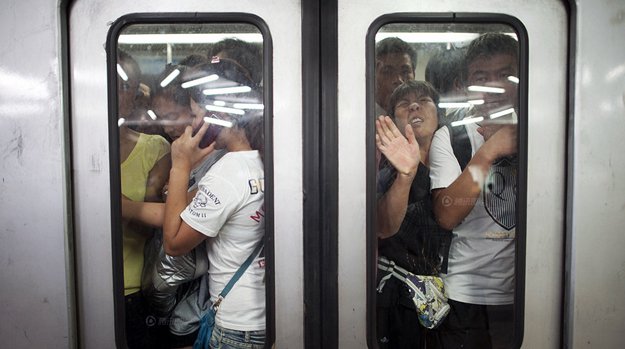Points system to cotrol mega cities inflows
chinagate.cn, July 31, 2014 Adjust font size:
Mr. Huang Ming, Vice Minister of Public Security and the officials from other governmental agencies briefed the press on household registration reform Wednesday in Beijing. [Full Text]
Q: The Third Plenary Session of the 18th CPC Central Committee decided to "completely lift restrictions on new residence registration in administrative townships and small cities, relax restrictions on new residence registration in medium-sized cities in an orderly manner, lay down appropriate conditions for new residence registration in large cities, and strictly control the population size of megacities." How will the requirements of the central government be carried out in local cities? The Opinion also proposes establishment of a mechanism that dovetails fiscal transfer payment with the urbanized agricultural population, so can you please give more specific details of this point?
Huang Ming:
Your questions concern two aspects. The first is about expounding the residence registration policy, and the second concerns fiscal policies. I will answer the first part.
The Opinion issued by the State Council sets out the mechanism for carrying out residence registration in small, medium, large and mega cities. It takes into account the realities in the cities and administrative townships, as well as in the different regions of China, and also details the means of implementing the different policies according to the nature of the existing local population and its ability to accommodate any significant population increase. The general requirement is to relax those restrictions capable of being relaxed and control those that should be controlled.
To completely lift restrictions in administrative townships and small cities means there is basically no limit for anyone willing to register a new residence, as long as there is proof of a legal and stable residence, even though such a place is rented. For medium-sized cities, the former restrictions will be relaxed, which means the registration requirement is low. Anyone who has legal and stable residence and employment can register successfully, according to their period of stay in the city of residence. For large cities, the restrictions will also be relaxed if applicable. For cities of one to three million people, anyone with legal, stable employment of sufficient duration, a matching legal and stable residence, and who have been covered by the social insurance system for a certain number of years, can be registered. For cities with three to five million residents, the scale and speed of residence registration will be properly controlled, in order to prevent the population from increasing too quickly. For such cities, the requirements for residence registration will obviously continue to be stricter.
For mega cities containing more than five million people, the Opinion stipulates that the population shall be strictly controlled, and an open and transparent new residence registration channel shall be established through a points system. Especially for cities that have more than 10 million people, any significant increase in population will impose large pressure. For example, in Beijing, Shanghai and Guangzhou, the migrant population has been increasing by 400,000 to 500,000 annually for the past ten years, which is indeed a huge pressure. Therefore, to strictly control the population in such mega cities is a policy based on China's national conditions and the realities in those cities.
But how? First, the policies on residence registration migration should be made stricter; the policies should be decided according to the conditions and realities in the specific cities. The current residence registration policies should be adjusted and improved, a points system should also be carefully developed, and the related problems should be resolved in accordance with the principles of total quantity control, fairness and equality, and openness and transparency. Meanwhile, mega cities should properly decentralize their economic and other functions so as to ensure an orderly population flow and a sound demographic structure. You may have noticed that mega cities like Beijing and Shanghai have adopted some comprehensive measures recently to mobilize their population and transfer some labor-intensive industries to other places, and adjust and disperse their economic and other functions. For instance, Beijing has clarified that it needs to "lose weight and keep healthy," which means comprehensive measures to deal with its population structure. This is my answer to your question. In regard to the other question, I'd like to invite Vice Minister of Finance Wang Bao'an to answer.
Wang Bao'an:
The fiscal policy has already laid down some foundation measures concerning dovetailing fiscal transfer payments with the national residence registration system. The fiscal transfer payment system has achieved much in adjusting to the residence registration requirements in recent years. For example, the part whereby the de facto population surpasses the registered population has been reflected in the general transfer payment. The balance transfer payment, on the other hand, takes into account the urbanized rural population. For instance, the education transfer payment is decided according to students' registered school (instead of their registered residence), which means the students, whether they come from the countryside or the cities, enjoy the same public service. The achievements made so far provide a firm foundation for the next phase of reform.
Second, the mechanism and means of the transfer payment will be further improved to adjust to the residence registration system, public service reforms and development of the national informatization program, in order to promote the orderly flow of urban and rural population and the continued healthy development of the urbanization process.


